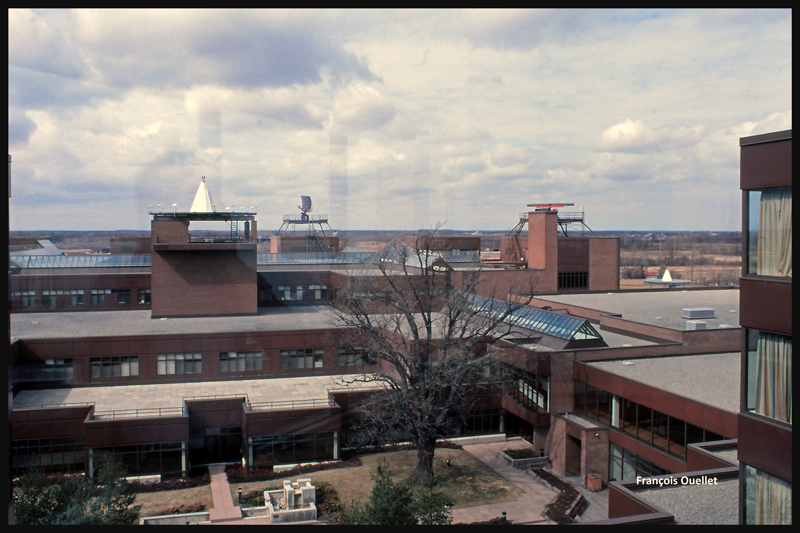
In the early 80s, the oil crisis forces airlines to greatly limit hiring. This was not the case during our pilot training course but becomes a reality when applying for a job a year later.
However, on the government side, the situation is quite different. Transport Canada is looking for new employees to replace staff approaching retirement age. The only option immediately accessible to me is to apply as a flight service specialist (FSS). I have only a rough idea of what are the responsibilities, nothing more. But the pay and advantages are far better than what is otherwise available to a new flight instructor. It is time to send in an application.
For the Province of Quebec, two written examinations totally unrelated with aviation are held at the University of Quebec in Montreal. There are 1500 candidates (5 sessions of 300 applicants) who attempt these tests during the two days allotted for the first phase of the selection process. In the following weeks and months, those who have succeeded in the written tests must then undergo anything from personal interviews to language tests, medical examinations and security clearances.
We are now three candidates from Quebec heading towards the Transport Canada Training Institute in Cornwall. There will be thirty-five hours of theoretical and practical course per week, over a six months period. The pressure will be continuous and desired in order to eliminate candidates who may not react well to stress.
We will be paid to study. A candidate is guaranteed with a posting upon completion of training, providing he manages to obtain 80% and above on the written and practical evaluations. Because this 82-01 course is not dedicated to Quebecers only, it cannot be offered in French. So it is going to be in English only, and will include twenty-four students from almost all Canadian provinces.
The Transport Canada Training Institute in Cornwall is nothing short of exceptional for those who have decided to study and succeed.
In order to help the student to deal with the weekly thirty-five hours of courses and examinations, the school provides interesting amenities.Each student has a private room with daily maid service. The cafeteria offers a good choice of meals. Calories can be burned at the pool, gym, weight room, on the tennis court or on the baseball field. A snack bar remains open for late-night cravings. A bank teller is made available to students, as well as a hairdressing salon, a bar, arcade games, pool tables, etc.
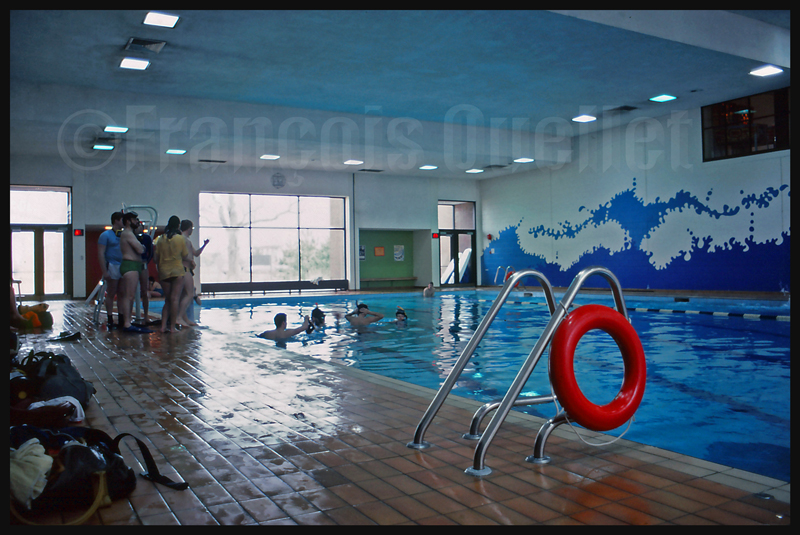
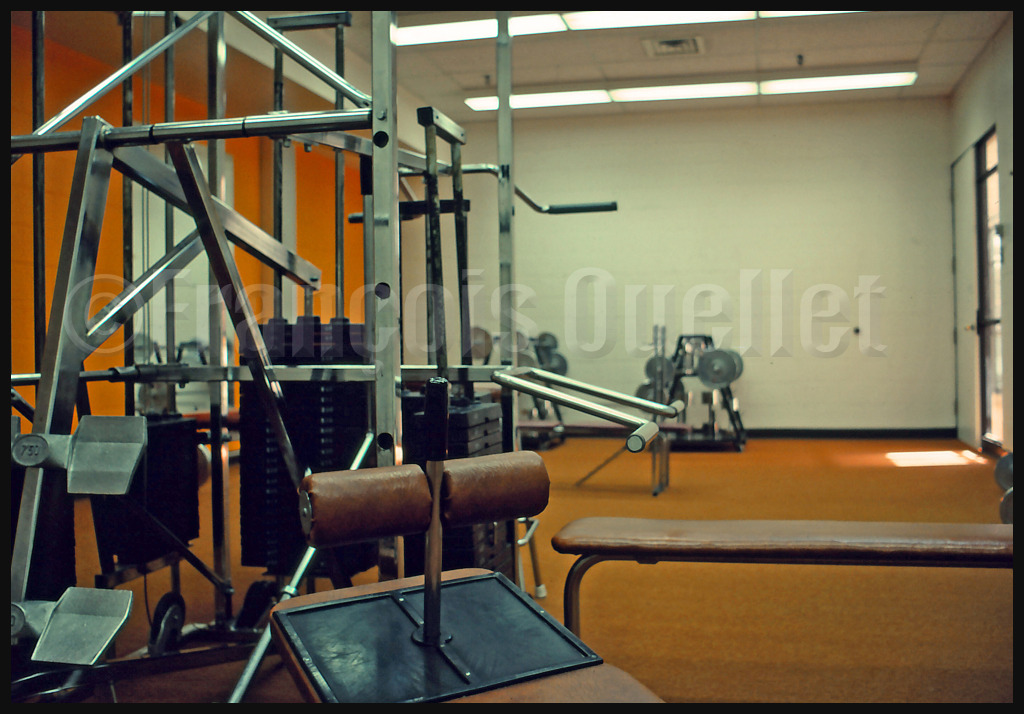
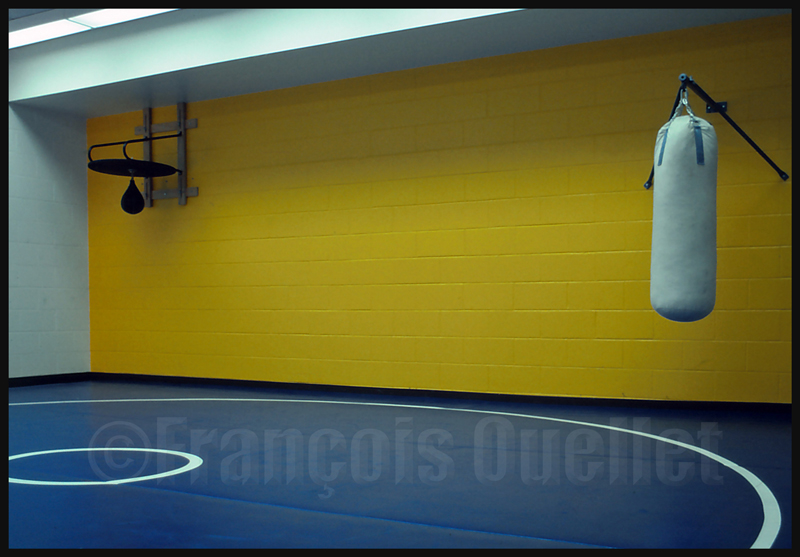
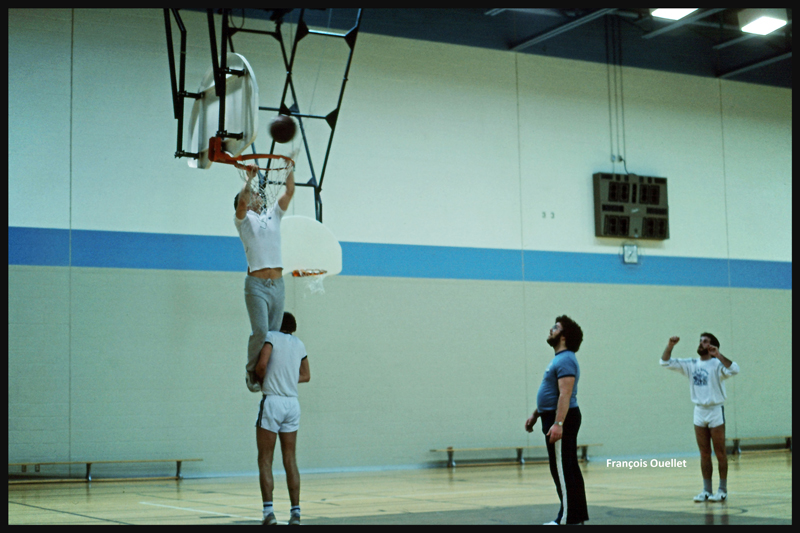
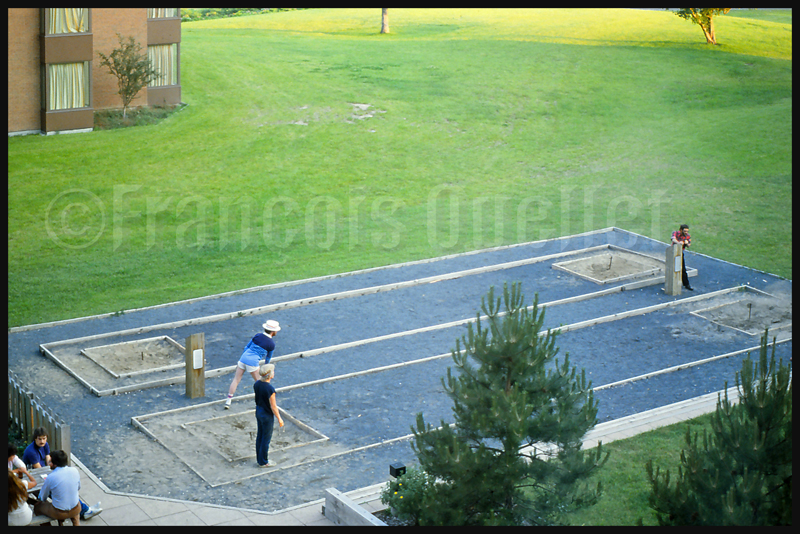
So that we understand what lies ahead, we are told that there are traditionally many students in each class who will not keep pace and will be sent home, despite their efforts. For a francophone who wasn’t using a second language on a daily basis , it is clear that integrating new theory presented in English for seven and a half hours every day, five days a week, becomes demanding. I compensate for the times when my attention decreases by studying in the evening.
There is a library in the school as well as multiples rooms for simulators designed for every career considered by the students.
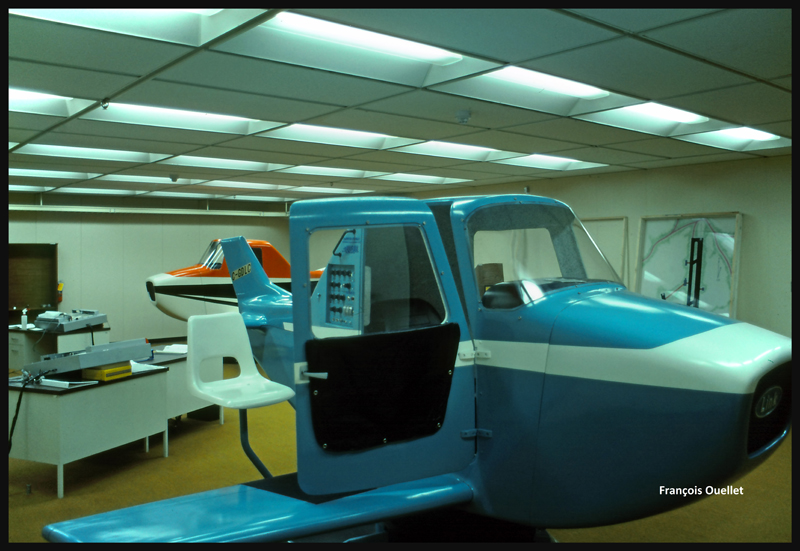
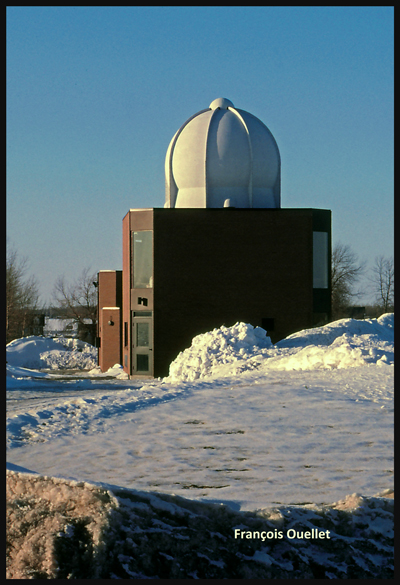
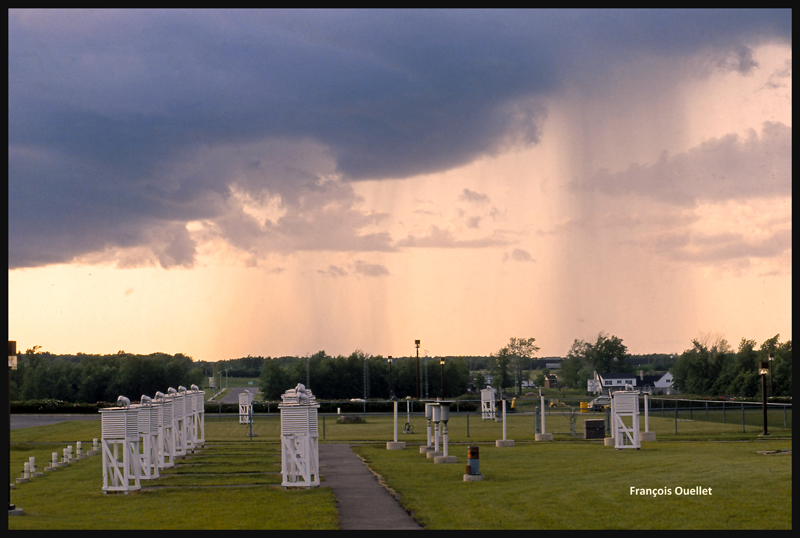
In the courtyard, there is a peacock and other small animals and a water source flows into a very well planned landscape.
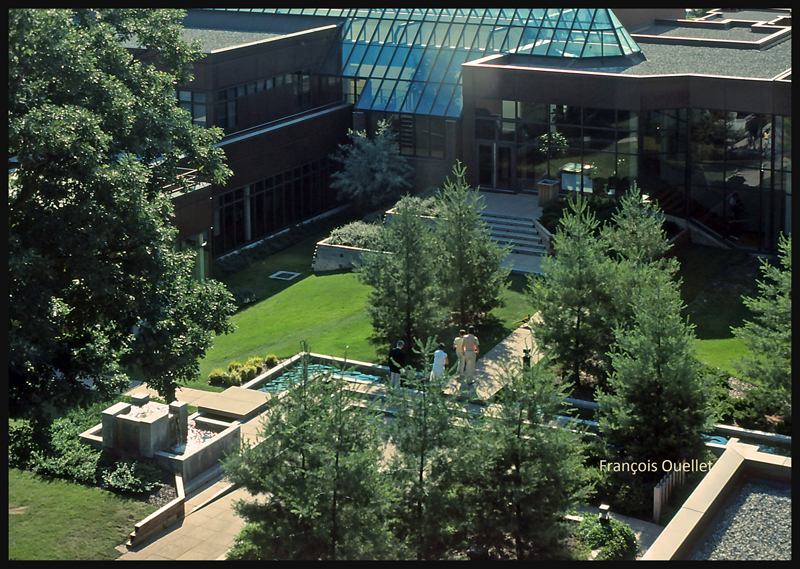
The amenities are simply stunning. The message is clear: “Transport Canada only ask you to study and succeed, it will take care of the rest.”
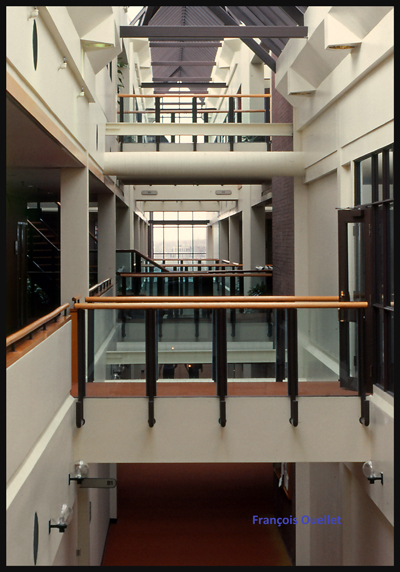
Finally, the moment we were all waiting for as arrived. Students who managed to get through the course celebrate their graduation.
Assignments are distributed. Those who will be working in isolated postings are well aware that the schedule does not include holidays. The FSS will be on duty every day. The new employee will be compensated for overtime and a more expensive cost of life. He will also benefit from subsidized rents.
My departure is planned shortly for Inukjuak, along the east coast of Hudson Bay. Life will soon change radically.
4 replies on “Life as a student at TCTI”
Francois, merci de ton message. Ca me fera plaisir de communiquer avec Viking si je peu aider a raconter une petite partie de l’histoire du Twin Otter.
Si tu viens dans la region de Cornwall, j’aimerais avoir l’occasion de te rencontrer. N’hesite pas a communiquer avec moi au 613-(***-**** texte édité pour confidentialité) ou par courriel à jr(************** édité pour confidentialité)
Jacques
C’est parfait Jacques, je conserve ton numéro de téléphone et adresse e-mail au cas où je prévois un voyage dans la région!
François
HI
My name is Jacques Renaud. I have just read your two postings about Life at TCTI and Life as an FSS in Inukjuak.
Your stories have a special interest for me. I was posted to Inukjuak then called Port Harrison, on July 15th, 1965. I then went to Fort Chimo in November 66 until 1977 when I was posted to the Upper Air station at Maniwaki. I got a job as an Weather Information Services teacher at TCTI in January 1980. So, I would have been teaching there when you were on course with FSS 82-01. I may or may not have been involved with your course as I was mostly involved with the french courses.
To this day, my stay in Inukjuac remains the most important part of my work life. I met my wife there. She was a teacher.
Your recounting of harrowing aircraft landings, blizzards and other events of daily life brought back many memories.
In the mid-60s Austin Airways would fly Cansos equiped with pontoos under the wings and land in the water. In the winter, they flew DC3’s with skis. Of course there was a break-up period and a feeze-up period when no planes would land. These would last 5 to 8 weeks, depending on wx conditions. So, when the first winter plane arrived, the entire village would come out to meet it. Those were exiting moments.
During break-up in the winter of 1966, there was a med-evac and the Canso or DC3 could not land. A Twin Otter was ready to come to pick-up the patient, so the whole village was asked to come to the sand pit where the sand runway was eventually built and prepare a make-shift strip, by removing stones and other debris and level imperfections in the sand surface. Twin Otters being the amazing planes they are, the flight was successful and the patient was taken out to receive the medical attention required. That was the first time a plane landed on land in Inukjuak.
I specially liked your reference to Dog Island as we called it, where the dogs are taken for the summer. One day a group of us went for a canoe ride past the island, and, would you know it, the motor quit, and the wind was drifting us toward the island. We were about 200 yard from the shore, and 80 dogs were lining up on top of the island watching a great meal approaching. Luckily we were able to restart the motor just in time.
Thank you for taking the time to relate your experiences. I should do a similar post to relate another slice of life in Inukjuak before technology took over.
Je viens de realiser que tes textes sont aussi en francais. C’est tout un travail. Je demeure toujours pres de Cornwall et j ‘ai souvent l’occasion de visiter NavCan. C’est toujours une aussi belle facilite.
Merci Jacques pour tes commentaires sur Inukjuak; toutes ces aventures méritent d’être racontées avant qu’elles ne se perdent pour toujours. Même Viking de Victoria, le nouveau constructeur du Twin Otter, sera heureux de lire ton e-mail car ils ont déjà demandé la participation de tous pour connaître des évènements impliquant des Twin Otter durant les débuts des opérations avec cet avion. Je leur glisserai une petite note sur ton intervention.
François